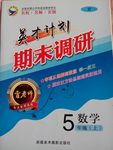题目内容
----“Each of the students, working hard at his or her lessons, _____ to go to university.”
----“So do I.”
A. hope B. hopes C. hoping D. hoped
B
解析:
“each of +名词复数”谓语用单数。

练习册系列答案
 名师点拨卷系列答案
名师点拨卷系列答案 英才计划期末调研系列答案
英才计划期末调研系列答案
相关题目
题目内容
----“Each of the students, working hard at his or her lessons, _____ to go to university.”
----“So do I.”
A. hope B. hopes C. hoping D. hoped
B
“each of +名词复数”谓语用单数。

 名师点拨卷系列答案
名师点拨卷系列答案 英才计划期末调研系列答案
英才计划期末调研系列答案